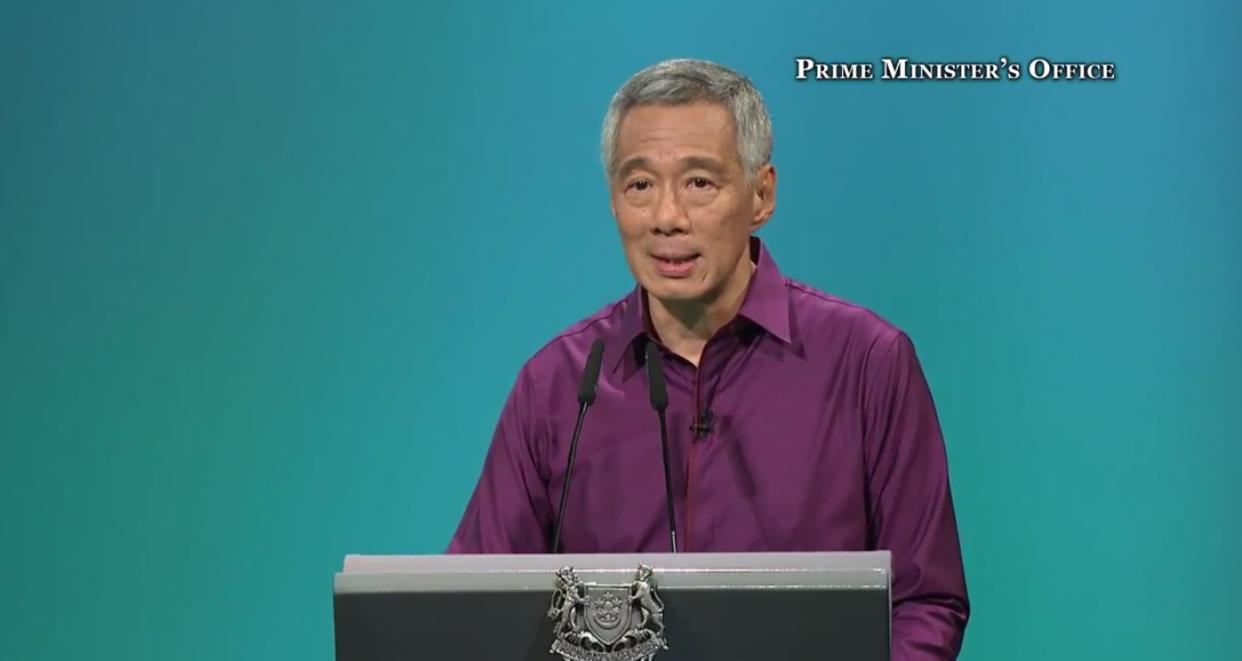COMMENT: Is Singapore becoming a catch-up nation?

The first clear sign that Singapore is beginning to lose the plot came on Sunday (20 August) as Prime Minister Lee Hsien Loong gave the National Day Rally, the year’s most important political speech. The three issues he raised – pre-school education, diabetes and smart nation – are not new as these have been raised before. So why did he make these issues the cornerstone of his address?
Not that he is bereft of more important issues to get Singaporeans to ponder, discuss and debate. Economist Jason Tan listed four areas in a Facebook post: reversing the decline in the reliability of our public transport infrastructure, understanding the productivity malaise, seeking ways to recalibrate and adjust the cost structure for businesses to remain competitive, and boosting social safety nets for the poorest and downtrodden in society.
I would add these: why political succession has become a slow-motion process, how our companies are faring in a disruptive world, how to manage a muscular China and a chaotic America and how to maintain Singapore’s economic eminence in a foggy world.
A case of poor planning?
My guess is that the PM is not happy with the way things are going on the three fronts he spoke about. The big push for pre-school education began many years ago when the government suddenly found that Singapore was lagging behind in the number of childcare centres and trained teachers. At one level, it was coaxing more women to have children as birth rates were hovering at dangerous levels that over a period of time would have made the Singaporean an endangered species. At another level, it was pondering the financial incentives to get women to have children.
Way back in 2012, pre-school education was already flagged as an area of concern. A study by the Lien Foundation on the most inclusive pre-school environments ranked Singapore at 29th out of 45 countries, way below Hong Kong and South Korea. Many efforts to keep fees affordable, churn out good quality teachers and increase the number of schools have all been implemented. For instance, 50,000 childcare and kindergarten places were added in the past five years. But all these are not meeting the surging demand. And the PM stepped in to say 40,000 more places and 35 more government kindergartens will be added in the next five years. So, how did the bureaucrats get their sums wrong in predicting the demand?
The diabetes scourge in Singapore is not something new. Nearly a year ago, Health Minister Gan Kim Yong declared the war on diabetes in Parliament. Since then, we have heard very little about this war until the PM declared on Sunday: “It is precisely because you are not worried that I am worried. It is precisely because many people do not take diabetes seriously, that it has become a serious problem.”
So, what happened between the time Minister Gan raised the red flag on diabetes and Sunday when the PM spoke at length about it? It is a national health crisis that is striking with great ferocity, yet the Ministry does not seem to have acted fast enough to convince Singaporeans about the invisible disease’s surreptitious advance.
Smart Nation is a more recent phenomenon. The PM launched it three years ago at another National Day speech, Minister Vivian Balakrishnan was put in charge, a special unit was set up in PMO; yet progress has been slow. As the PM admitted, other countries, like China, are moving faster than Singapore. Again, why are we not moving fast enough? As the PM said, Singapore has a natural advantage as the country is highly connected and is a digitally literate society. A little bit of frustration crept into his message when he said, “But we need to do much better.” The question is: why didn’t we do much better?
There was a time
Singapore was not like this. Singapore Airlines, the Port of Singapore Authority and the Housing Development Board were all world beaters at one point. An opportunity was spotted, seized and pursued vigorously with a single-mindedness that seems to be absent today. For example, the water story is one that should make all Singaporeans proud. A recent article in Business Insider talked about the Singapore leaders’ foresight in creating a sponge city with every drop of water available being soaked up to be recycled for industry and homes to use. Those are very strategic issues, and Singapore found solutions that made the country the envy of the rest of the world.
Underlying all these messages is a malaise creeping into today’s Singapore. The lack of hunger to move faster is not just an issue for the population, it seems to be also one for the government. If its officers had understood the seriousness of these issues, the PM needn’t have played catch-up on Sunday. And he could have talked about more pressing issues facing a nation in a major transition.
A survey released by Blackbox Research on Monday (21 August) showed that more Singaporeans were indifferent to the PM’s speech than those who were positive. What was telling was when Singaporeans were asked whether the speech made them feel confident about Singapore’s future, 35 per cent of them answered positively, followed by 54 per cent who were neutral and 11 per cent who were negative.
Will the government wake up?
P N Balji is a veteran Singaporean journalist who was formerly chief editor of Today, as well as an editor at The New Paper. He is currently a media consultant. The views expressed are his own.
Related stories:
Almost half of Singaporeans neutral on PM Lee’s National Day Rally speech: poll
National Day Rally 2017: Soft drink makers agree to cut sugar in drinks sold in Singapore
National Day Rally 2017: Govt to build institute for preschool educators, open up more places for kids
National Day Rally 2017: Street parking app to be launched by October



